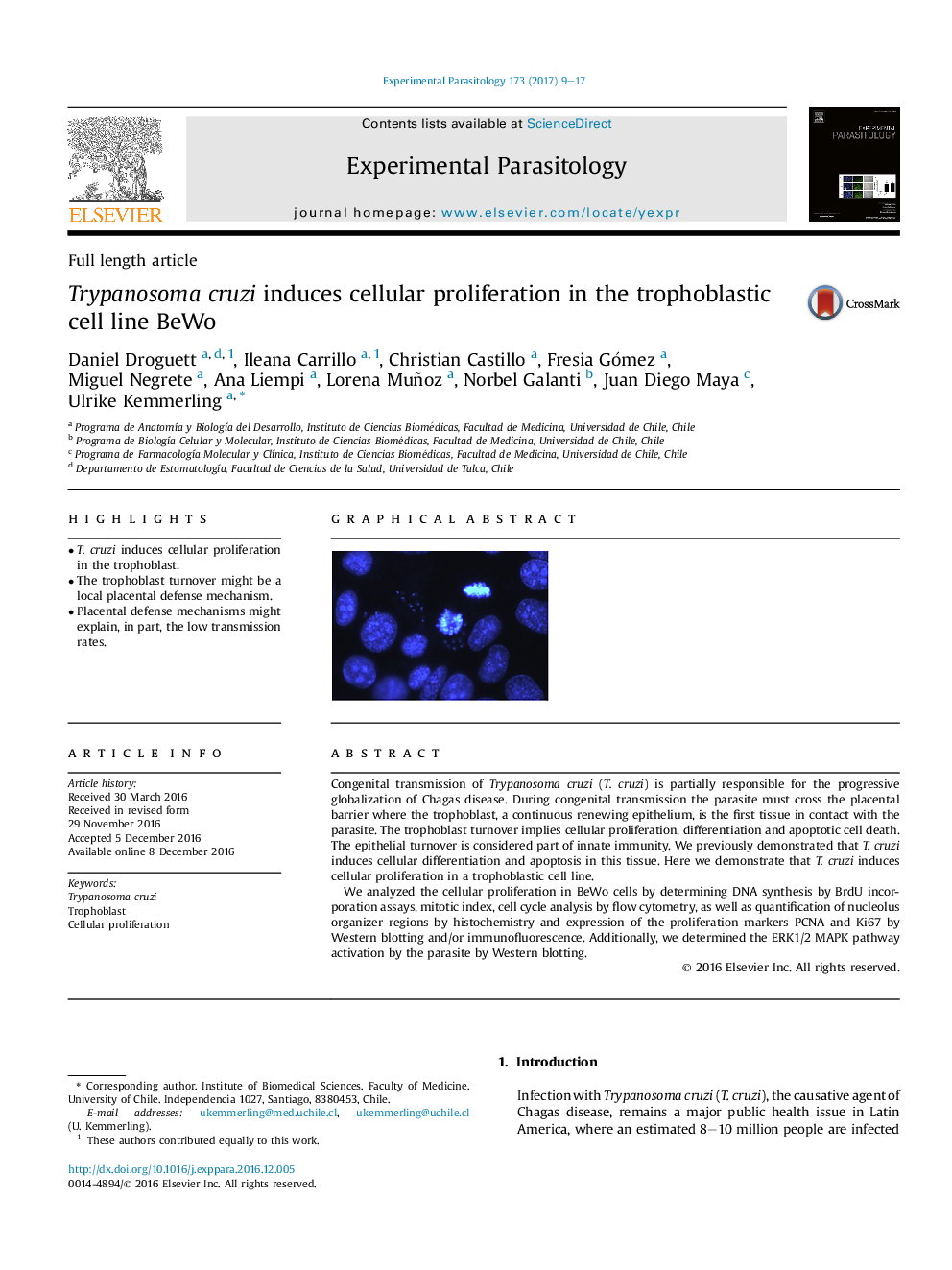| Article ID | Journal | Published Year | Pages | File Type |
|---|---|---|---|---|
| 5741151 | Experimental Parasitology | 2017 | 9 Pages |
â¢T. cruzi induces cellular proliferation in the trophoblast.â¢The trophoblast turnover might be a local placental defense mechanism.â¢Placental defense mechanisms might explain, in part, the low transmission rates.
Congenital transmission of Trypanosoma cruzi (T. cruzi) is partially responsible for the progressive globalization of Chagas disease. During congenital transmission the parasite must cross the placental barrier where the trophoblast, a continuous renewing epithelium, is the first tissue in contact with the parasite. The trophoblast turnover implies cellular proliferation, differentiation and apoptotic cell death. The epithelial turnover is considered part of innate immunity. We previously demonstrated that T. cruzi induces cellular differentiation and apoptosis in this tissue. Here we demonstrate that T. cruzi induces cellular proliferation in a trophoblastic cell line.We analyzed the cellular proliferation in BeWo cells by determining DNA synthesis by BrdU incorporation assays, mitotic index, cell cycle analysis by flow cytometry, as well as quantification of nucleolus organizer regions by histochemistry and expression of the proliferation markers PCNA and Ki67 by Western blotting and/or immunofluorescence. Additionally, we determined the ERK1/2 MAPK pathway activation by the parasite by Western blotting.
Graphical abstractDownload high-res image (109KB)Download full-size image
